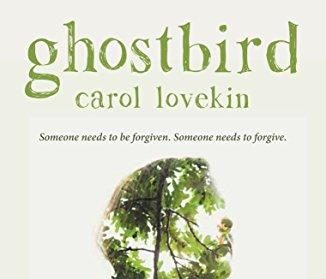Honno, £8.99, 340pp
Math and Gwydion took the flowers of oak and broom and meadowsweet and from these conjured up the loveliest and most beautiful girl anyone had seen; they baptised her with the form of baptism that was used then, and named her Blodeuwedd.
‘Math, Son of Mathonwy’
The Mabinogion
In a small welsh village where in August it rains every day, there’s a house named Ty Aderyn: the house of birds. Built by a local man for his lover, the house has been home to generations of the Hopkins family, whose women are ‘beautiful and generous, black-haired, with eyes the colour of harebells and desire.’ Near Ty Aderyn is a lake where, fourteen years ago, a tragedy took place: in the split second her father’s attention is taken away, little Dora Hopkins drowns, devastating the Hopkins family and fundamentally changing the life of her unborn sister, Cadi.
Fourteen years later, Cadi Hopkins is a girl who feels everyone knows her story but her; she knows her sister Dora drowned and her father Telio died in a car accident before she was born but has no idea what they were like as people; Violet, her troubled and emotionally distant mother, feels the best way to deal with the past is by not dealing with it; Lily, Telio’s sister, is sympathetic to Cadi’s plight but bound by a promise to Violet she knows she should never have made. But this summer, Cadi is determined to find out the truth. And she’d better hurry: out at the lake, a ghost is stirring.
In Ghostbird, Carol Lovekin has created a beautifully emotional story about the importance of forgiveness, wrapped up in a loose retelling of the story of Blodeuwedd (the above quote is also used as the book’s epigraph). If, like me, you’re not familiar with the Mabinogion, this needn’t worry, for it’s motifs, rather than the story’s framework, Lovekin uses to put forward her ideas. Birds, for instance, are a prominent motif, in particular, owls, the bird Blodeuwedd is cursed to remain as and what the ghost slowly metamorphoses into: what is a punishment in one becomes a symbol of freedom in the other. Dora’s full name is revealed to be Isadora Bloddeuwedd, one name chosen by Violet, the other by Telio, their order of placement, their very choosing, a symbol of the conflict between them. The name Bloddeuwedd itself means ‘flower face’ and one of the signs of the ghost’s presence is the cloying scent of meadowsweet.
One of the things I must commend Lovekin for is the portrayal of her male characters; with more feminist, or more female centric, retellings of folk and fairy tales there is a tendency to render them as two dimensionally as the women before them or as pantomime villains, which, for me, doesn’t so much redress the balance as just swing the pendulum in the opposite direction. Lovekin does not fall into this trap. Her male characters are not perfect, yes, but have positive traits to counterbalance their flaws. They are, in other words, fully rounded people.
That being said however, this story belongs to the Hopkins women: Cadi, Violet and Lily. Cadi is a character who you never fail to sympathise with, even when circumstances force her to behave childishly, as information she has a need and right to know is kept from her. Violet is more problematic: daughter of a woman who withheld any motherly love, lonely woman who married a man whom she wasn’t right for nor he her, and mother unable and unwilling to let go of the grief for the daughter she lost in order to form a relationship with the daughter she has. You’ll frequently find yourself torn between the desire to give her a hug and to give her a good shake, often in the space of the same page. It is through Violet that the story’s major theme plays out, which is, in a similar vein to Ishiguro’s The Buried Giant, that in order to move forward, past hurts must eventually either be forgiven or forgotten, even if little has been or can be done to rectify them. If Cadi and Violet are opposite extremes, then Lily provides the balance, sympathizing with Cadi, knowing she has a right to what is being,kept secret but reluctant to break her promise of silence to Violet, no matter how ill-conceived she knows it may have been, trying instead to talk Cadi and Violet into a dialogue, with varying degrees of success.
Another thing I must commend Lovekin for is her portrayal of same sex relationships: during the course of the story, Lily falls in love with another woman in the village – and that’s it: it isn’t swept under the carpet nor does it take over the narrative, it’s just one of the many elements in the novel’s tapestry, treated as completely normal, and it’s beautiful.











